Basically, vending machines in Japan can accept payments not only in cash, but also by electronic payment methods such as IC cards (such as Suica, Pasmo) or mobile phones.
However, depending on the location, there are machines that only accept payment in cash or only accept payment by card.
Depending on the payment method, usage is also different.
In this article, I will introduce specific uses for each type of machine.
How to use vending machines in Japan
Vending machines can only be paid in cash
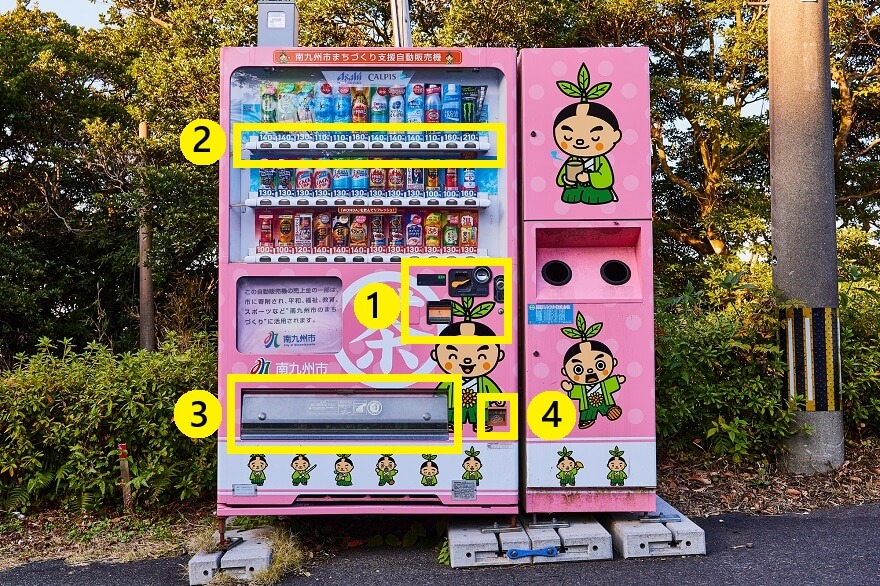
To make a purchase using a cash-only vending machine, follow these 4 steps:
- Step 1: Put money into the machine
- Step 2: Choose product
- Step 3: Receive product
- Step 4: Receive your change back
Step 1: Put money into the machine
You can make purchases with coins or notes.
Note that 1 yen, 5 yen coins and 2,000 yen, 5,000 yen, 10,000 yen notes CANNOT be used.
Step 2: Choose product
After you put money into the machine, the button below the product will automatically light up. Click the button right below the product you want to select.
During the cold season, vending machines in Japan often offer both cold and hot drinks.
Cold drinks have blue buttons, hot drinks have red or orange buttons. When clicking, look carefully to avoid making the wrong choice.
Step 3: Receive product
After you press the button, the selected product will automatically fall into the tray below the machine.
Open the tray lid to get the product.
Step 4: Receive your change back
In case the amount of money you put into the machine is more than the value of the product, don’t forget to get the change back before leaving.
The way to receive is very simple, push the lever down and the change will be released in the compartment below (usually designed next to the product receiving tray).
Vending machines can pay with IC cards
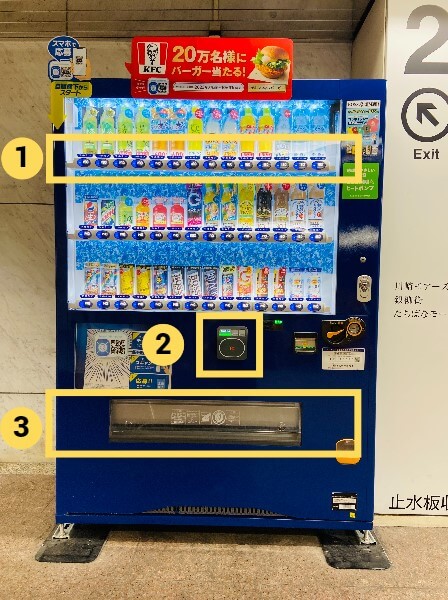
To purchase goods using a vending machine that allows payment by IC card (such as Suica, Pasmo), please follow these 3 steps:
- Step 1: Choose product
- Step 2: Swipe the card to the designated place
- Step 3: Receive product
Step 1: Choose product
Click the button below the product you want to select.
Step 2: Swipe the card to the designated place
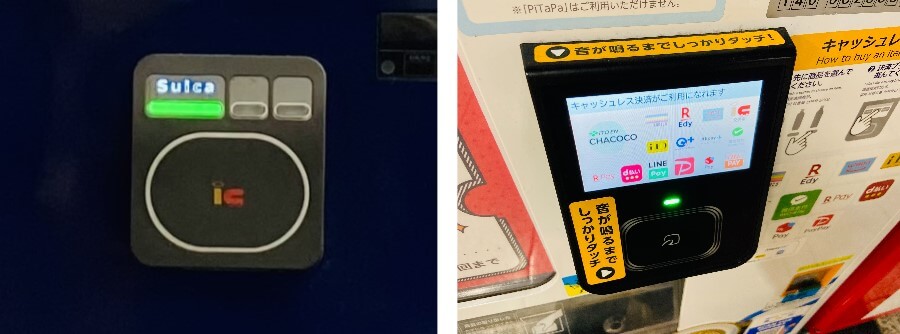
Find the black square with the IC card symbol and place the card (or a phone or watch with a built-in card) on it.
Don’t rush to move your card, but wait until the sound signaling that the payment has been completed rings.
Note that the type of card accepted will vary depending on the machine. In case the machine allows payment with multiple types of cards, click to select the card type before swiping the card.
Step 3: Receive product
After swiping the card, the selected product will automatically fall into the tray below the machine.
Open the tray lid to get the product.
Vending machine with touch screen
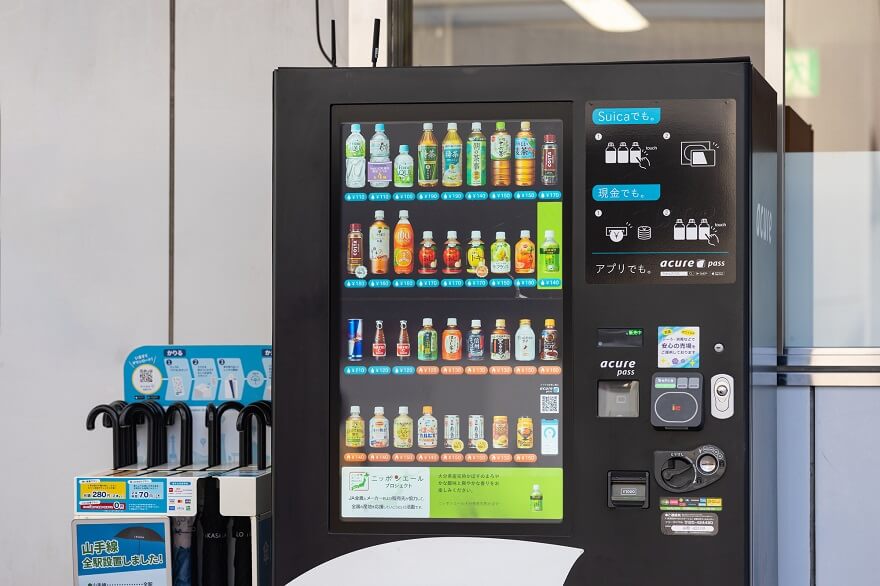
At large stations or central areas, you may encounter vending machines that do not have normal buttons but only have product display screens.
This is a touch screen so you can make purchases by clicking directly on the screen.
Useful tips for using vending machines in Japan
Use a recycling bin so you don’t have to carry trash
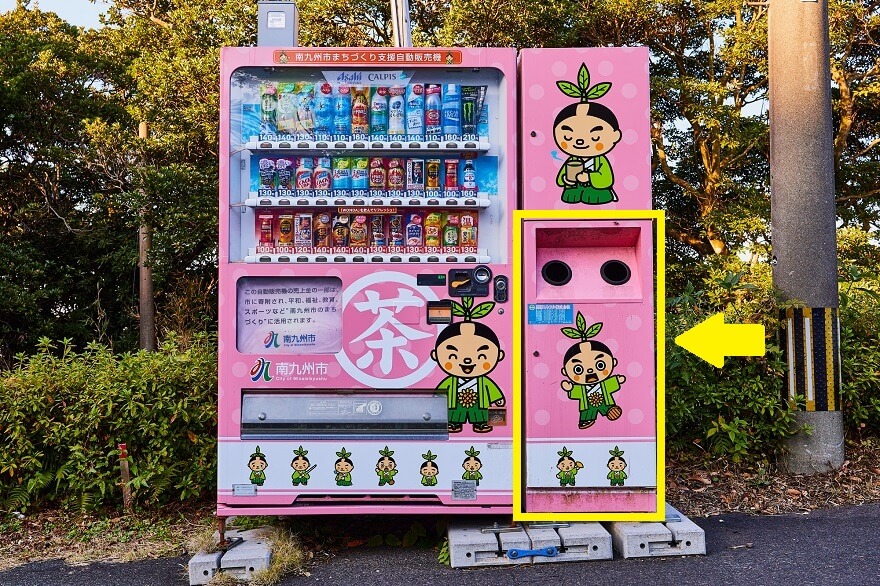
Most vending machines in Japan are equipped with recycling bins right next to them. You can throw your finished water bottles or cans here so you don’t have to carry trash when moving.
Note that this is not a trash can, so don’t throw trash in it.
Save more with cheap vending machines
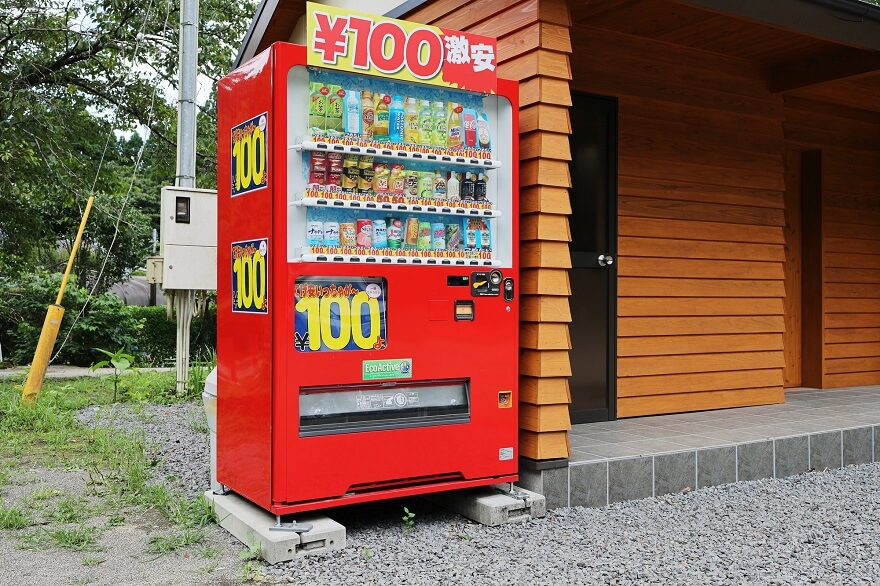
Drinks at vending machines are not too expensive, but if you want to save more, you can find vending machines at the same price.
These machines are often located outside stations or on small streets.
The most popular is the 100 yen vending machine, where you only need to pay 100 yen for any product in the machine.
Depending on the locality, there are sometimes vending machines that cost 50 yen or 80 yen, so you can buy drinks at a cheaper price than the supermarket.
Conclusion
Combining convenience and fun experiences, vending machines have become a unique symbol in Japanese shopping culture.
Use the information in this article to easily shop from vending machines and enjoy the convenience they offer.


Comment